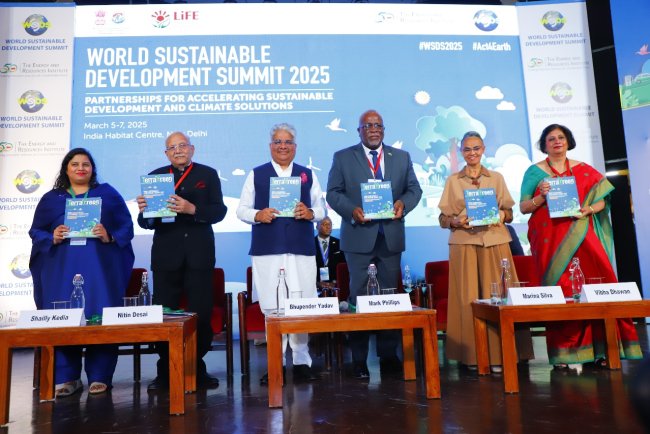India Hits Population Milestone: Total Fertility Rate Declines To 2.0
India achieved the major milestone of population control with the Total Fertility Rate reaching 2.0, informed NFHS-5 survey for 2019–21. It was targeted under the National Population Policy 2000 and National Health Policy 2017 for a TFR of 2.1, providing the country with a sustainable population growth.

India achieved the major milestone of population control with the Total Fertility Rate reaching 2.0, informed NFHS-5 survey for 2019–21. It was targeted under the National Population Policy 2000 and National Health Policy 2017 for a TFR of 2.1, providing the country with a sustainable population growth.
Various family planning programme have therefore been put in place to ensure that this progress, and simultaneously improvement in reproductive health services is realized. An overview of the initiatives is given below:
An expanded contraceptive basket offers the beneficiaries a range of choices, like condoms, oral contraceptive pills, emergency contraceptives, intrauterine contraceptive devices (IUCDs), and sterilization. Recently introduced methods, like the injectable contraceptive MPA (Antara Programme) and Centchroman (Chhaya), increase the choices further.
Thus, the Mission Parivar Vikas covers seven high-priority states in this behalf along with six North Eastern States to expand access in selected high unmet need geographies to contraceptives and family planning services. Support for Sterilisation A compensation scheme compensates beneficiaries the wage loss during their undergoing the procedure. Options like PPIUCD, PAIUCD and PPS are other contraception options provided to its beneficiaries after pregnancy.
Events like the World Population Day Campaign and Vasectomy Fortnight, held annually, ensure family planning education and service delivery throughout the country. Supplementing this is the Home Delivery of Contraceptives Scheme, through which ASHAs make sure that contraceptives are delivered to the doorstep.
A functional FP-LMIS ensures efficient management and distribution at all levels of health facilities for family planning commodities.
Approvals for state-specific budgets under the Programme Implementation Plan, with approaches for fertility management being tailored according to regional needs, are given by the Ministry of Health and Family Welfare.
The Union Minister of State for Health and Family Welfare, Smt. Anupriya Patel, pointed out these efforts in her written reply to the Rajya Sabha, underlining the commitment of the government toward promoting reproductive health and sustainable population management.
With these initiatives, India is going to continue its population stabilization trend, while arming people with the wherewithal in making informed choices on family planning.
What's Your Reaction?

















